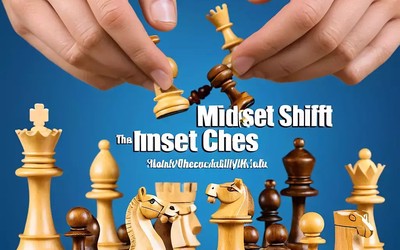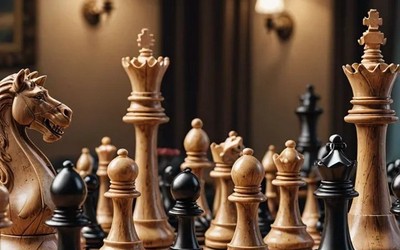
Thoughts during a chess match
Thoughts during a chess matchToday, I'll guide you through the mental game of chess.
Many students freeze when asked, "What's on your mind during a match?"
This is a common issue: acting impulsively under pressure, leading to moves you'd never make otherwise.
But with a simple mental approach, you can make better decisions and avoid emotional pitfalls.
The mantra is simple: Right process with the wrong move is better than the wrong process with the right move.
Top coaches in various fields obsess over mastering fundamentals. My tennis coach insists on perfecting technique before power.
Poker coaches stress logic over intuition, urging players to think through every move.
For chess, I want you to ponder two questions with each move:
- What's my opponent's move aiming for?
- What happens if I make my move?
Here's why and how:
Step 1: Analyze Your Opponent's Move It's tempting to dive into your own plans, but chess is a dialogue. Your opponent's moves matter too.
Look for:
- Direct threats
- Overall strategies
- Weaknesses created by their move
Ignoring your opponent's moves leads to disaster. Stay alert.
Step 2: Double-Check Before You Move Now, consider your options. See if their move has left any vulnerabilities. Then, think through your own plans.
Check for:
- Checks
- Captures
- Threats
But resist the urge to rush. Take a breath and ask yourself: "What's my opponent's response if I make this move?"
This simple question can save you from costly blunders.
A Simple Mental Routine Here's your game plan:
- Understand your opponent's move.
- Plan your move, prioritizing checks, captures, and threats.
- Before you commit, double-check for oversights.
Practice this process until it becomes second nature.
Sure, there are more advanced strategies, but as my tennis coach says, "Master the basics first, every time".
More blog posts by Skypelesson99

Transform Chess with Mindset Mastery
Transform Chess with Mindset Mastery
Selecting the Best Chess Tournament Category
Selecting the Best Chess Tournament Category
Real-Life Chess Success Stories
Real-Life Chess Success Stories